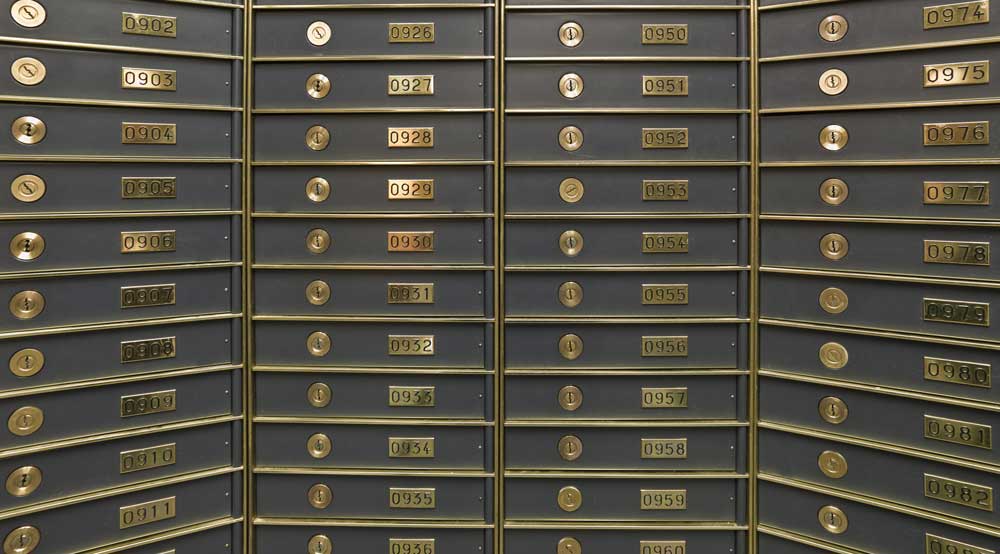As many banks phase out bank safe deposit boxes, what other options are there for valuable goods?
Several high street banks have stopped providing bank safe deposit boxes, potentially putting valuable and expensive items at risk.
Customers who rely on these boxes to keep treasured pieces safe are now left with few options to make sure these items are protected.
Securely monitor and keep track of your finances, wherever they are kept with Plans from Lovemoney.com. Access Plans for free >
The end of bank safe deposit boxes
Bank safe deposit boxes can be used to store expensive items and until recently most banks provided them to current account holders for a yearly fee.
But because of cost-cutting measures they are now being phased out by many.
Barclays, for example, has started withdrawing the boxes from branches and they’ll all be gone by the end of the year. Barclays has written to customers and given them six months to clear out the boxes.
The bank blamed storage issues for the decision and said the scheme had become complex and costly.
Other banks, such as Lloyds and NatWest/RBS, were slightly less abrupt and just shut the scheme down to new customers.
The Co-op has also stopped this service while HSBC says it only has around seven branches (out of 1,189) which offer the bank safe deposit boxes. At Santander and Nationwide this has never been an option.
Extra security
Bank safe deposit boxes can be used for anything valuable, such as artwork, legal documents or jewellery and are stored in a bank branch. Often they are used to store collections of jewellery which are handed down through families, particularly in Asian communities.
It’s a much safer way to store expensive items as the bank safe deposit boxes, or lockers, are kept in the bank under CCTV and behind a thick metal door. Customers are then given a set of keys, or sometimes a swipe card, and can access the contents of their box when they want (during working hours).
Although anything can be held in the box, customers will need to sign a document stating it doesn’t contain anything illegal, such as drugs, guns or laundered money.
The contents also need to be covered in the customer’s home insurance policy.
The banks still offering security lockers
Metro Bank is one of the only banks to provide the bank safe deposit boxes, which it says customers made clear they wanted. There are five different sizes available, which range from £120 to £480 a year, and each box has two keys – one for the customer and one for the bank.
Craig Donaldson, CEO for Metro Bank, explains: “We’re committed to offering our customers the very best in service and convenience, and the fact that they want somewhere to keep their valuables, means that we’ll keep on building bank safe deposit boxes. It’s as simple as that.”
State Bank of India also provides the boxes in five of its ten branches in the UK and they cost between £125 and £250 a year.
The right insurance
Wherever you keep your valuable items, you need to make sure they’re insured. Valuable items will need to be listed on your home insurance policy and will come under the ‘personal possessions’ cover.
The value covered varies between insurers. But eSure, for example, will cover up to either £10,000- or £20,000-worth of valuables. Any items over £1,500 will need to be listed.
As well as insurance you’ll also need to keep hold of documents such as: the original purchase receipt, if you have one, a valuation, certificate of authenticity, original box, and photos of the items.
Some insurers, such as eSure, Aviva and Direct Line, will also give you a discount if your goods are held in a safe deposit box because they’re seen as more secure, but you’ll need to tell them if you take the items out of the box.
Luke Parker, underwriting manager at Direct Line home insurance, explains that for pieces which are removed, cover can be agreed for a short period, typically up to 14 days for items of jewellery up to a value of £20,000, and the insurer may charge a small additional premium to do so.
“Items regularly taken out of the bank, for example every weekend, are generally not accepted unless a customer has adequate security at home to protect the items at risk. If you have any items of high value, the best advice is to speak to your insurer,” he adds.
Other alternatives
Most of the banks still offering bank safe deposit boxes only allow current account holders to sign up so they won’t be an option for everyone.
There are many private companies offering the same service, but the prices vary wildly. These are also a lot more expensive but often guarantee to cover goods up to a certain value if stolen. Metropolitan Safe Deposits, for example, charges between £132 and £2,180 per year and includes cover with Lloyds of London for up to £15,000 worth of goods.
Whichever option you choose you must make sure you tell your insurer to guarantee your things remain protected.
This article originally appeared on HOUSEHOLD MONEY
Written by Rebecca Goodman

